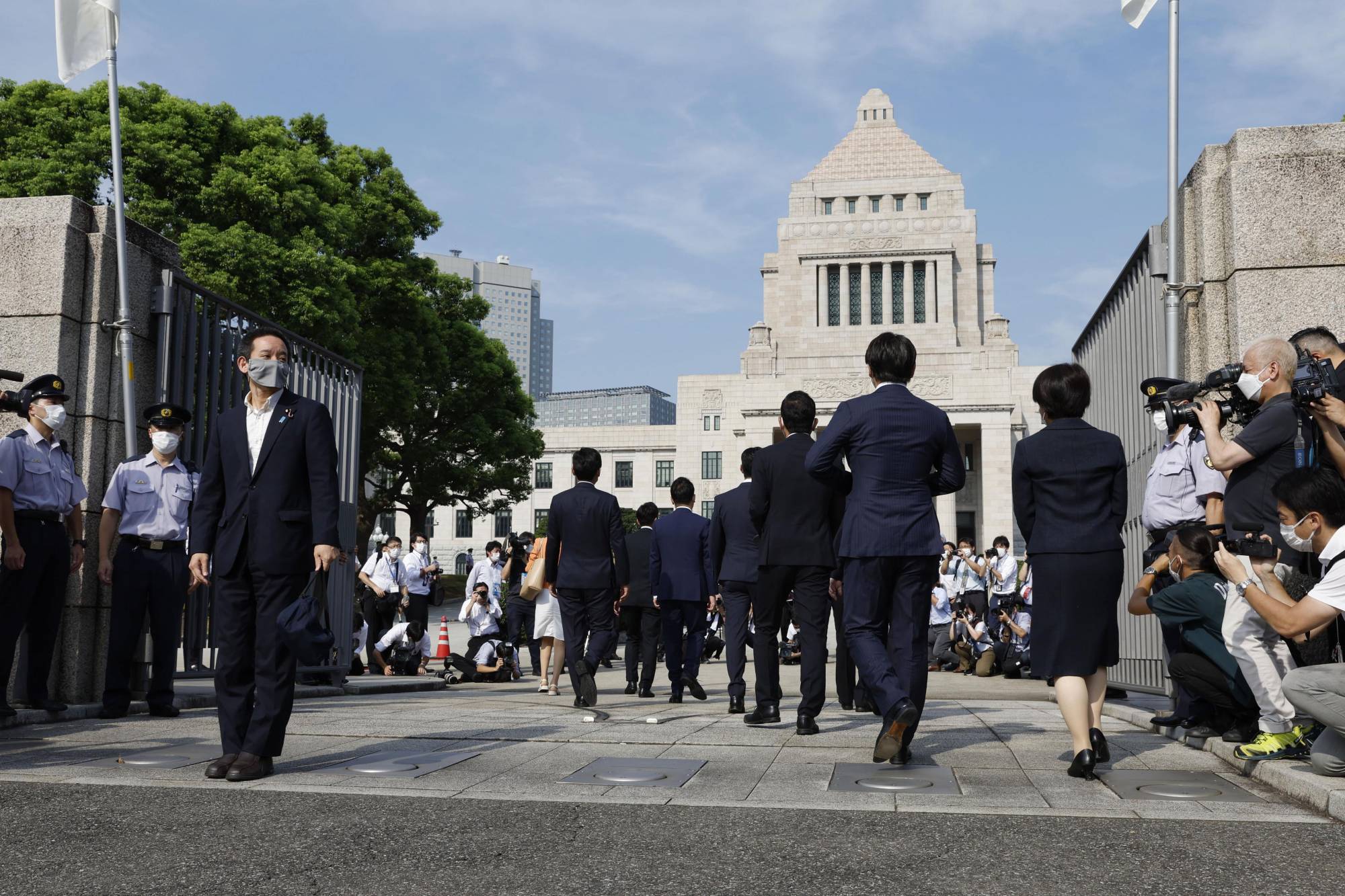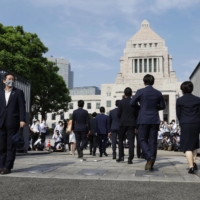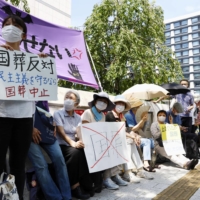An extraordinary parliamentary session began Wednesday, although a debate on a state funeral for former Prime Minister Shinzo Abe has been put on hold for the three-day sitting despite ongoing controversy about whether the ceremony is appropriate for the influential yet divisive figure.
The ruling and opposition camps are dealing with procedural issues during the parliamentary session and have agreed to hold discussions on the state funeral and other key issues, including inflation and politicians' controversial ties to the Unification Church, outside the session.
New lawmakers elected in the July 10 House of Councilors election attended a session for the first time, while ruling Liberal Democratic Party member Hidehisa Otsuji was elected the Upper House president.
On the last day of the session, House of Representatives Speaker Hiroyuki Hosoda is scheduled to deliver a condolence message for Abe, Japan's longest-serving prime minister, who was assassinated by a lone gunman two days before the election.
The LDP originally sought to have Akira Amari, a close aide to Abe, deliver a more significant parliamentary speech Friday but decided to forgo the plan amid criticism it is inappropriate, given Amari has been mired in scandals and opposition leaders have given such speeches in the past.
Also Wednesday, about 100 people opposed to the government's decision to hold a taxpayer-funded state funeral for Abe held a rally in front of the Lower House members' office building in central Tokyo.
"Examination (of Abe's legacy) should come before a state funeral," a participant called out. "Let's bring back democracy."
The Cabinet of Prime Minister Fumio Kishida has decided to hold a state funeral on Sept. 27 for Abe, raising concern among the opposition camp that it could be used to cement a positive legacy of the sometimes controversial figure.





